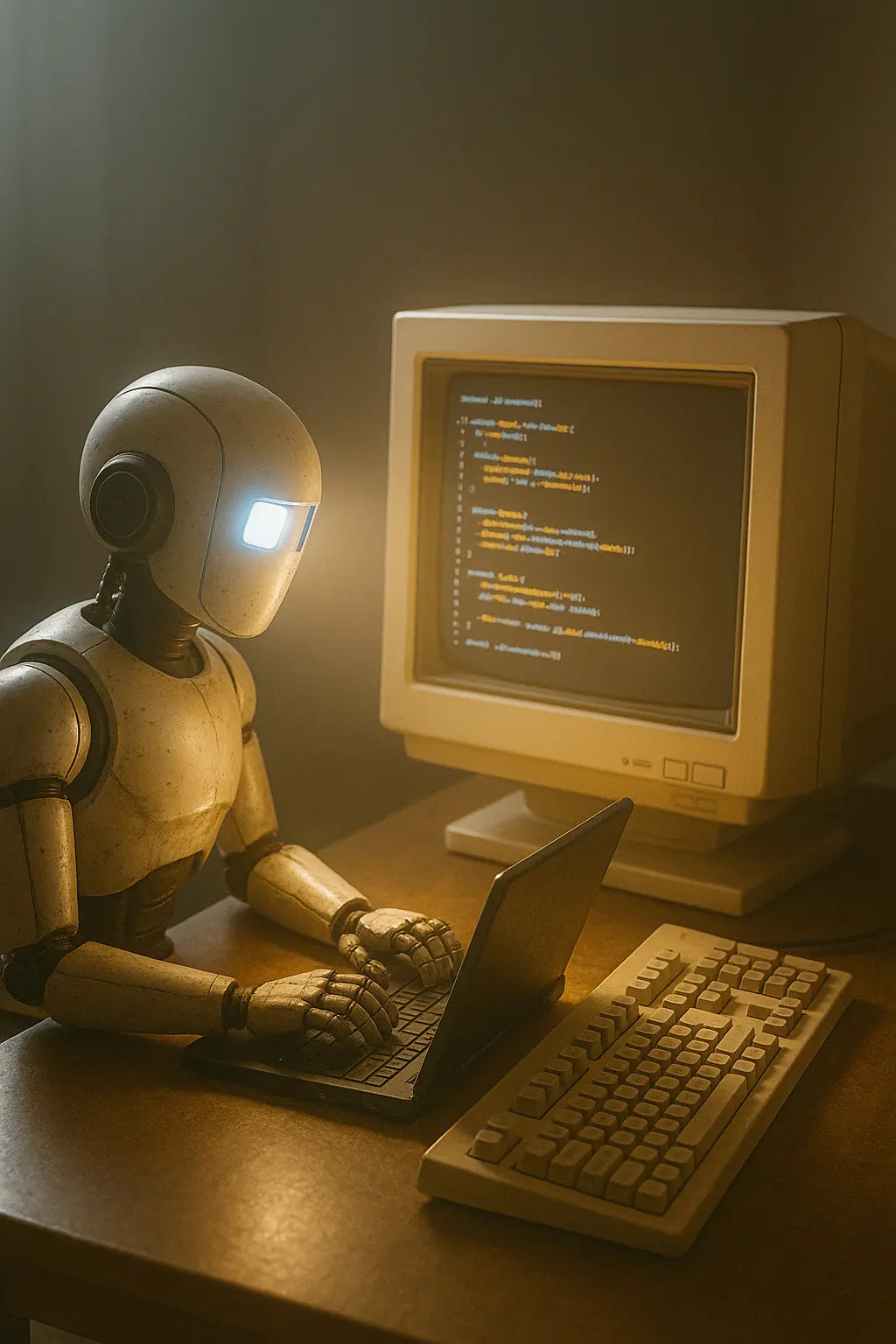Yes it’s a pretty bold statement, but it’s also very true. First off AI being referenced in this article mostly speak of codegen from tools like ChatGPT, Gemini and Claude. Anthropic’s CEO says that in 3 to 6 months, AI will be writing 90% of the code software developers were in charge of right now.
My initial thought was simply this is an absurd overstatement but then again even reflecting on ourselves as people who write code the average developer used to have a tab of Stackoverflow opened in their browser but now it’s most likely replaced by ChatGPT. Recently I was exposed to a platform called Lovable that builds prototypes from user prompts. They call it a GPT Engineer that can ship fully functional web apps and now claims to have 500,000 users who are building over 25,000 new products daily.
(reference: Sweden’s Lovable, an app-building AI platform, rakes in $15M after spectacular growth)

A good analogy is WordPress, it did not replace 40% of the internet’s websites but instead made the whole process of building a website more approachable for more people and so skyrocketing the amount of websites that got published.
The reality is not that AI has taken over writing code but there is so much more code being generated today because AI has given the ability to so many people who didn’t have the capability to code before. It’s superpower to someone who has the ability to shape a good product. Now we don’t even need to think about the language being written, we just guide the AI to shape our outcome. As long as we have a good sense of how things should fit together and as long as we can identify where it’s derailing we can always hop in and correct it.

Platforms that contribute to the vast and ever-growing ecosystem of AI code:
- Bolt.new (open source more framework focused)
- Lovable.dev (for non coders)
- v0.dev (recently acquired by Vercel)
- a0.dev (for mobile apps)
- same.new (for user interfaces)
Influence to Developers
But today someone who is learning has a whole different perspective. They do not have to tirelessly hack together code for hours, nor be stuck in a problem for hours. For coders who are freshout AI can accelerate learning and make them more efficient from the start. When we were there it was so novel we learned from the ways we had presented back in the day and now the bar has risen and the process has changed fundamentally, we are not better off because we started early but in fact we are finding it so much harder to fit into the new ways because we are so deeply engraved with how we sought out to see the world.
AI is here to outlive all of us, it will also keep involving forever. AI today and a year from now will be entirely different so it doesn’t matter that you pick it up today or a year later, but in fact it’ll be easier to grasp and take advantage of by then.
How AI has evolved:
- Prompting: better intent recognition and more context aware.
- Integrations: baked into everyday tools we use.
- Assistance: debugging, autocomplete, and code reviews.
The real skill is to have the ability to learn and to be able to relearn.
Takeaway
As more software gets built and becomes increasingly accessible, so will the number of software engineers. The reality is with more engineers writing code, let’s be honest there will be more bugs to fix.
AI models need continuous training, and they do this by learning from existing code. But if that code is increasingly AI-generated, the system starts feeding on itself, creating a feedback loop. This leads to model collapse, a phenomenon where AI degrades over time as it keeps training on its own data. That’s why developers remain crucial for decision making, debugging, and architecture, to ensure AI produces a well-governed output that’s diverse.

